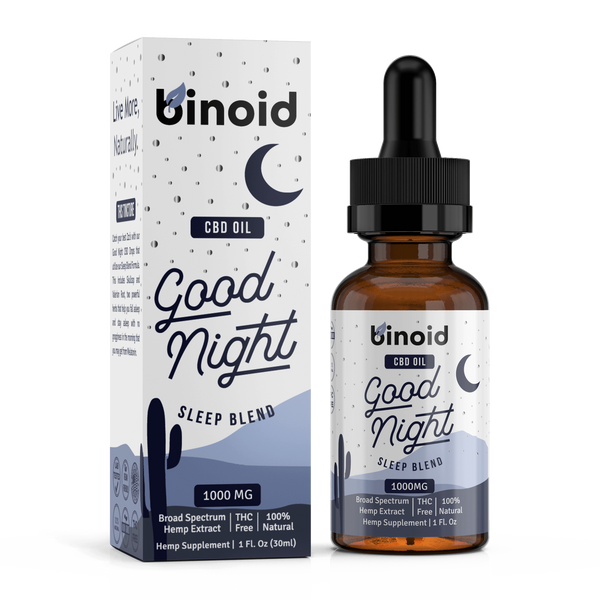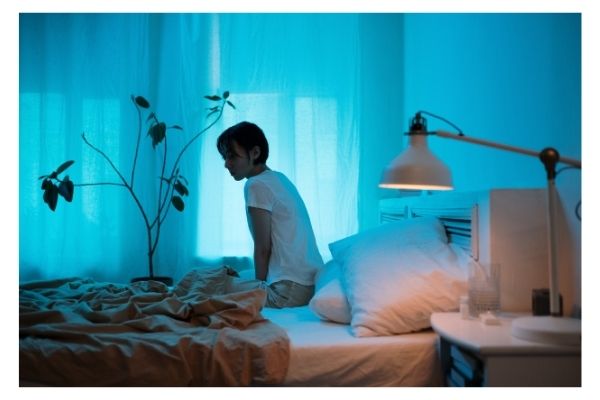【Sleep disorder】Fighting sleeping problems with cannabis
Weed smokers are typically portrayed as groggy and unmotivated couch-slumbing folks, barely able to accomplish any meaningful task.
While potheads frown at this stereotype, scientific research shows that cannabis is associated with extreme sleeping patterns. This means that while some users get more deep sleep, others tend to sleep much less, with the heavier users experiencing a more intense sleep cycle.
According to the Sleep Foundation, nearly 70% of young adults ‘casually’ consume marijuana to promote better sleep. In addition, at least 85% of people who take cannabis for medical purposes report improved slumber.
The Sleep Foundation also notes that an increasing number of adults are experiencing symptoms of sleep disorder and chronic insomnia. Consequently, there’s a drastic increase of interest in marijuana as an effective sleep aid.
It’s important to note that research into cannabis and sleep disorders is still ongoing. And researchers are yet to gather conclusive data to determine whether long-term cannabis consumption is beneficial or ultimately detrimental for your sleep.
【Over 13K Review】Here’s what BINOID customers think.
Mechanism of sleeping disorder.

Sleep disorder is a condition that regularly prevents a victim from sleeping well. It is often characterized by problems with quality, timing, and the amount of sleep you get.
Common sleep disorders include insomnia, sleep apnea, excessive daytime sleepiness, and restless leg syndrome. These disorders often occur by themselves or are associated with medical/mental health conditions like stress, anxiety, and depression.
Insomnia, commonly described as difficulty falling asleep or difficulty staying asleep, is the most common sleep disorder. This disorder often results in daytime fatigue, and in severe cases, a patient may experience cognitive and mood disturbances. Insomnia typically varies in how long it lasts and how often it occurs in different patients. Generally, 50% of adults experience occasional bouts of insomnia, while at least 10% battle chronic insomnia.
It’s important to note that insomnia can exist both as a symptom and a clinical disorder. This means that some people can experience insomnia symptoms without necessarily suffering from insomnia disorder. However, even insomnia symptoms that don’t have the severity to constitute a clinical sleep disorder can disrupt your sleep and negatively impact your well-being and performance.
Insomnia is typically associated with daytime impairments like decreased motivation, less energy, irritability, daytime sleepiness, and fatigue. Understand that you don’t need to have all insomnia symptoms and daytime impairments to have insomnia disorder. Even one symptom or a single daytime impairment is a potent sign of insomnia disorder.
Acute insomnia comes on suddenly and can last for as little as one night or persist for a few weeks. Insomnia meets the criteria for a chronic sleep disorder when it lasts at least three nights every seven days for a month or longer. This kind of insomnia often results from factors like chronic stress, depression, or pain at night.
How does cannabis help with sleeping problems.

The first and most important thing to note is that cannabis plants possess a wide variety of active ingredients, with tetrahydrocannabinol (THC) and cannabidiol (CBD) being the most common. THC, the cannabinoid that causes a high, acts as a sedative. However, it can have a stimulating effect when consumed in higher doses, especially for marijuana novices.
Some of the terpenes in cannabis (chemical compounds that give each strain its unique taste or smell) also possess sleep-boosting abilities. A good example of terpenes that contain sedative properties and have been found to reduce specific insomnia symptoms include Myrcene, Limonene, Terpinolene, and Terpineol. Terpenes such as Phytol and Pinene have been shown to shorten the time it takes to fall asleep and increase overall sleep amount.
Another critical thing to understand is that cannabis delivers its sleep-promoting effects by interacting with the endocannabinoid receptors in our brain. Once cannabinoids bind to these receptors, they communicate signals that suppress our brain’s arousal system while boosting the levels of sleep-inducing adenosine in the brain.
According to preliminary studies, marijuana can improve sleep for people with certain conditions, such as post-traumatic stress disorder (PTSD), multiple sclerosis, and chronic pain by, helping them fall asleep faster and wake up less during the night.
Another study also concluded that marijuana can effectively relieve the symptoms associated with restless legs syndrome, essentially improving sleep quality.
Studies have also been done comparing marijuana’s effect on the sleep cycle of daily marijuana users vs. occasional consumers. People who use marijuana regularly/daily are highly likely to report more sleep problems than people who use marijuana less frequently or non-users.

Good Night CBD OIL – SLEEP BLEND from BINOID
Good Night CBD Oil Drops use our sleep blend formula paired with 1000mg of broad spectrum CBD to assist with the sleep of your dreams. Our sleep blend consists of ingredients that provide support with sleep including CBN, valerian root, skullcap, and lemon essential oil.
Ease your night, and have your best Zzz’s with our good night CBD oil. This product is vegan-friendly, gluten-free, kosher, and THC-free.
Conclusion- The best form of cannabis to use for sleep.

Smoking is perhaps the most common way to consume marijuana. When marijuana is ingested via a joint, blunt, or pipe, the THC gets into the bloodstream quickly, delivering a near-instant onset of effects. In addition, smoking offers a higher bioavailability (56%) than other forms of marijuana, like oral ingestion (4-20%).
However, if you are concerned about the effects of harsh smoke on your lungs, you can vaporize, eat, use sublingually, or even apply marijuana as a topical, e.g., in the form of lotions, balms, and creams.
The best time to take marijuana for sleep depends on the type of product you’re using. You can smoke cannabis right before bed as it delivers its effects almost immediately. On the other hand, edibles must first pass through the digestive system and liver before being absorbed into the bloodstream. Therefore, they are best taken at least 30-60 minutes before bed or nap time.
So, how much marijuana should you use for sleep? Unfortunately, there’s no one-size-fits-all when it comes to marijuana dosing. Because everyone’s physiology is different, you will need to experiment to get the ideal dose for your needs- you want to do this on the weekend or your day off!
That’s it for this time. Thank you so much for reading.
If you found this article helpful, please consider sharing it with a friend.
【Want better sleep?】No more pills, go for hemp. Click here for natural way.

